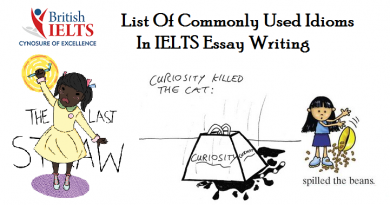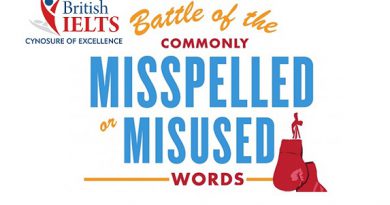Which vs That- Time to Uncover The Writer’s Secret
There is repeatedly a situation while writing when most of us are caught up in the dilemma of choice- “Which and That.” To conquer this hurdle, and once for all, it is essential to understand a little bit about clauses.
What are clauses?
A clause is typically a collection of interrelated words including a subject employed to convey the theme of the sentence to the readers, and a verb that states what the subject is doing. Clauses are of four types: independent, dependent, relative or noun clause.
Both “Which and That” are frequently used by people (all ages) from all walks of life in their daily routine. Many of them, yet, don’t know the theory or the principle of including them in their article, essay or just about any piece of writing. This is amongst the most common grammar mistakes for IELTS exam.
Let’s Take An Example:
My bike that has a broken seat is in the garage.
My bike, which has a broken seat, is in the garage.
A defining clause, also commonly pronounced as a restrictive clause, a type used to give information essential to the meaning of a sentence. A thing to keep in mind- “that” is used in defining clause.
In the former, the writer is explaining that he has more than one two wheelers by saying, “the bike that has”, specifically distinguish from others with the help of broken set.
On the flip side, “which” introduces a non-defining clause. Unlike the defining type, this one doesn’t limit the meaning of a sentence. If you remove them, you will only lose interesting details about the subject, but the main idea will remain the same.
The latter sentence is describing the bike by saying “the bike which has a broken seat,” there is no implication from the side of the writer that he or she owns more than any one bike.
Check some of the exclusive tips to improve your grammar for IELTS
Time to Uncover the Writer’s Secret
Now, that you know non-defining clause introduced by “which” is removable (no critical information will be compromised), it is quite easy to use both of them without exploiting the laws of syntax.
If you’re striving to get 9 bands in your IELTS, it is worth every cent to enroll in British IELTS, Chandigarh best coaching center for IELTS classes.




